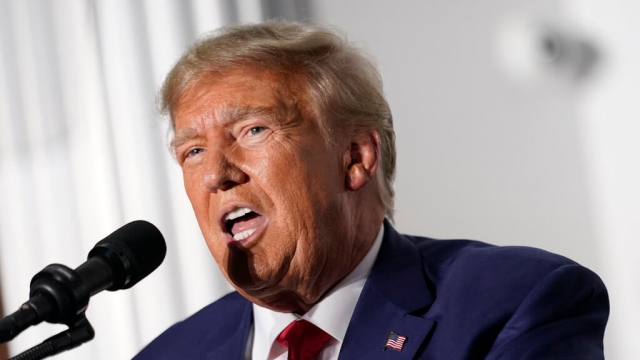Trump spoke to supporters Tuesday night in some of his first public comments since his arraignment hearing earlier in the day in Miami, Florida.
In a speech from his club in Bedminster, New Jersey, Trump immediately attacked President Joe Biden and the Department of Justice, calling the case against him election interference and political persecution.
"Today we witnessed the most evil and heinous abuse of power in the history of our country," he said.
Trump claims authority under the Presidential Records Act
In his speech, Trump again falsely claimed the Presidential Records Act gave him the right to retain the documents he kept after his presidency.
But Trump is charged under the Espionage Act, in connection with improperly handling classified documents.
How do charges under the Espionage Act apply?
The Espionage Act doesn't concern just spying. Section 793 of the act pertains to the willful retention of national defense information, such as those classified documents listed in Trump's indictment.
The indictment says Trump retained secret and top secret records on America's nuclear program, foreign nuclear capabilities and other details about U.S. and allied military capabilities.
Who has the authority to declassify defense information?
Trump claims he has the authority to declassify records, but in cases of certain military documents that's not true. The indictment lists previously classified documents related to the military's use of atomic weapons, which are under the purview of the Department of Energy and Department of Defense. In most circumstances, declassification of such documents is not up to the president.
An audio transcript included in the indictment also alleges that Trump knowingly and improperly shared military planning documents with individuals who did not have clearance to view them.
SEE MORE: Trump arraigned, pleads not guilty to 37 felony counts
As of last week, Trump is the first former president to be indicted by a federal grand jury. On Tuesday he entered a not guilty plea to 37 felony counts, most of them for allegedly mishandling classified documents.
A U.S. Marshals source told Scripps News earlier Tuesday that Trump would be digitally fingerprinted and his photo would be uploaded into a court system. Trump did not have a mugshot taken at the arraignment, and Judge Jonathan Goodman did not place bond restrictions on him. He is not considered a flight risk.
A trial date has not yet been set, leaving open the possibility that Trump may be involved in active cases in the middle of the 2024 election season.
SEE MORE: Poll: Trump far ahead of GOP rivals despite indictment
Trending stories at Scrippsnews.com




